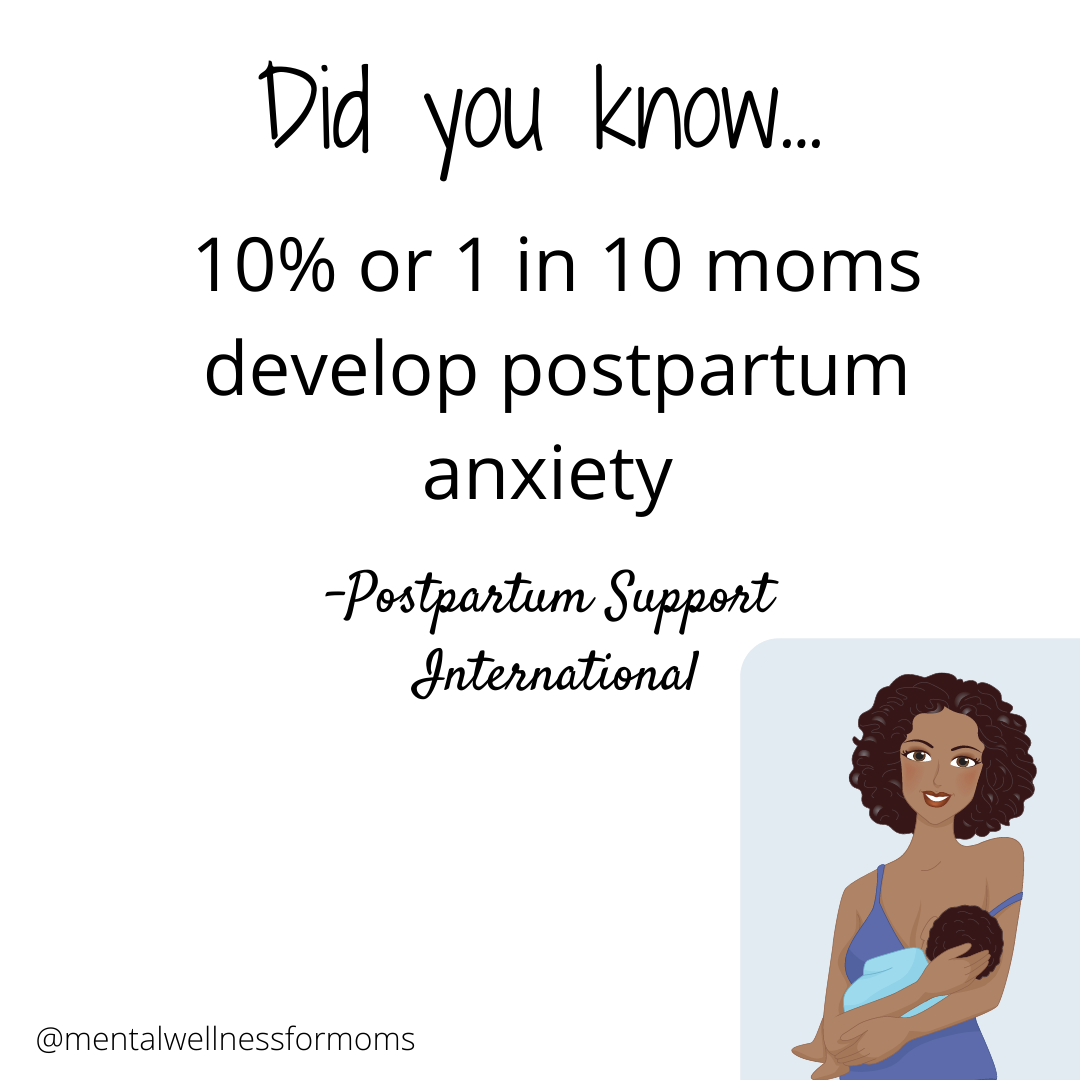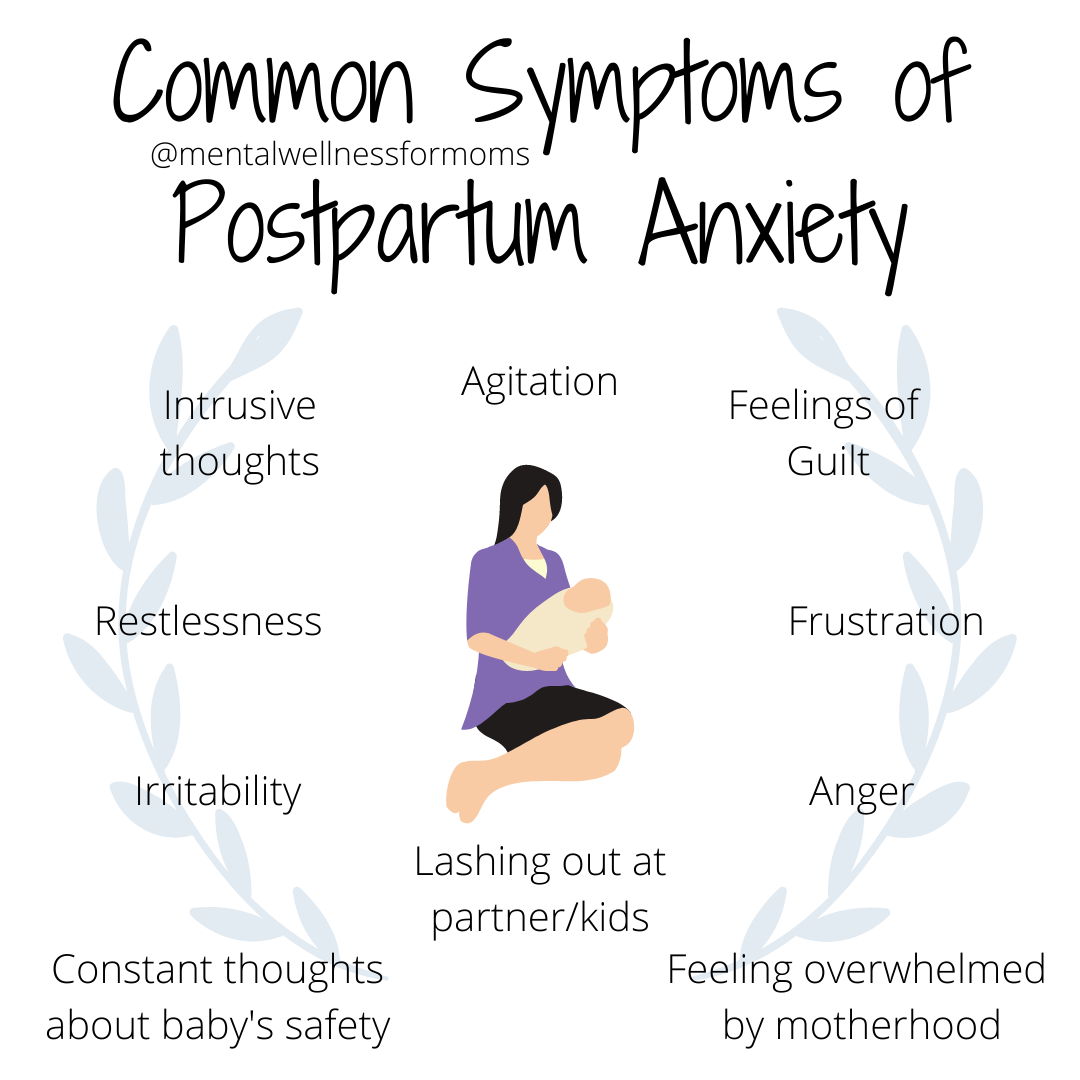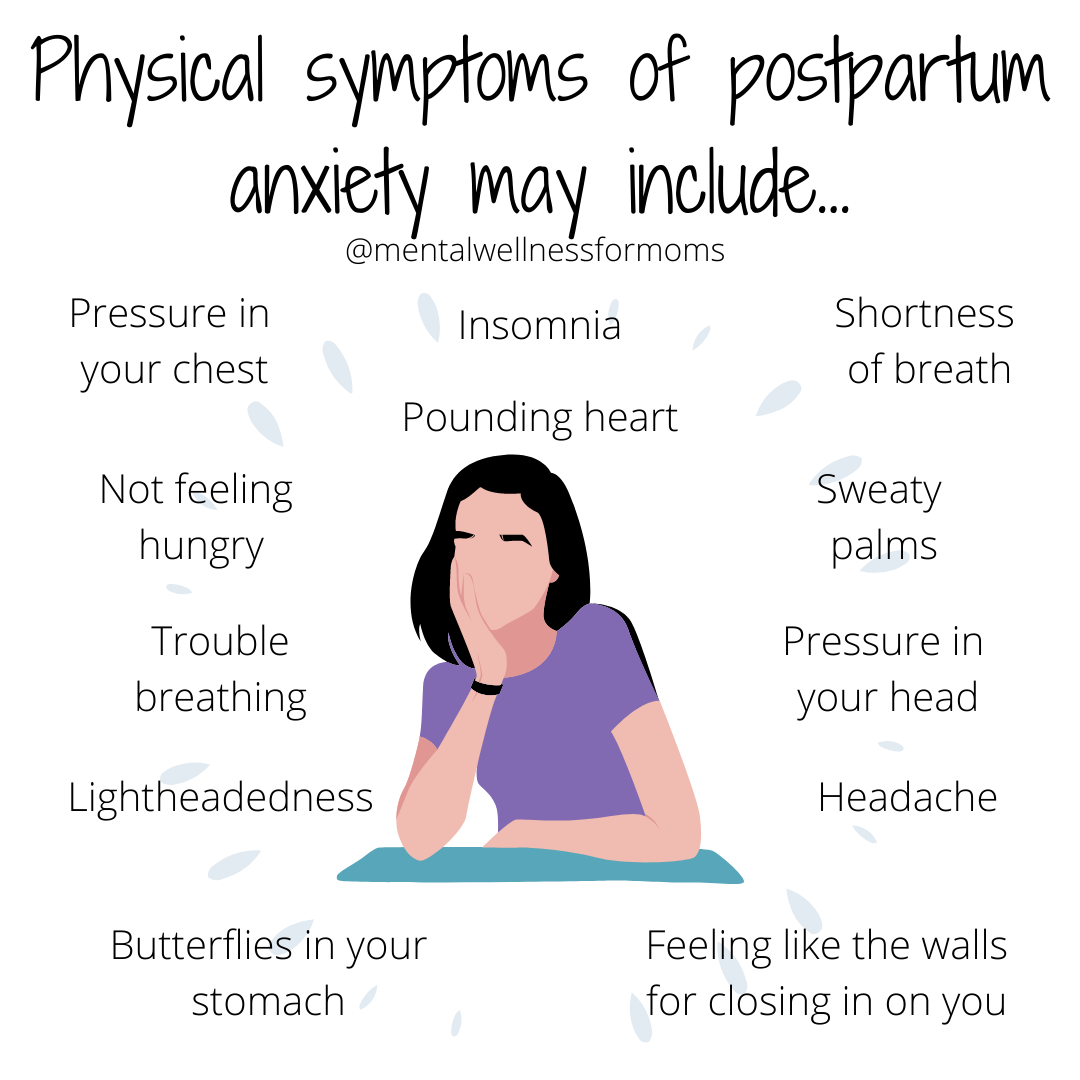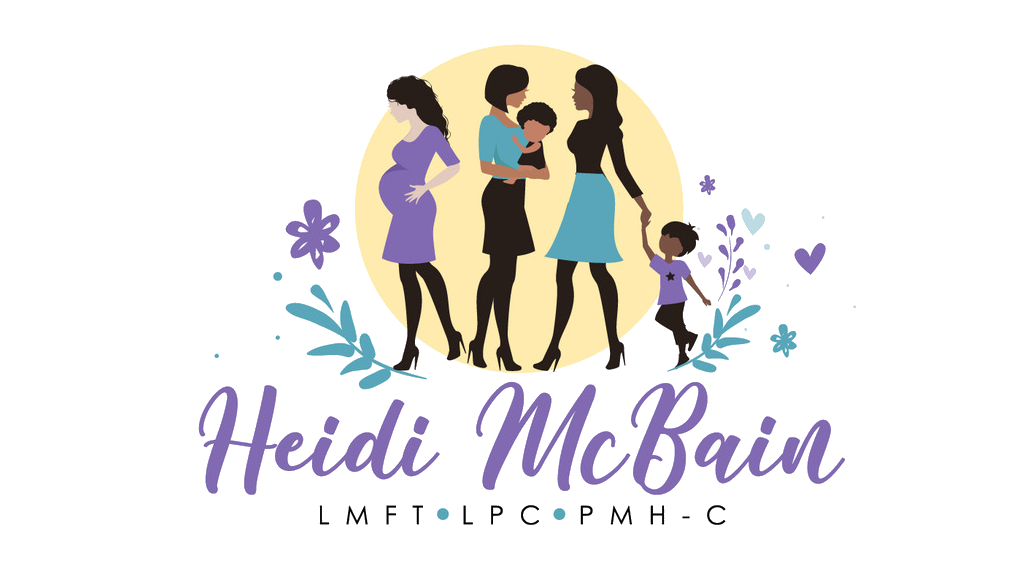

Change can be scary, but you know what’s scarier? Allowing fear to stop you from growing, evolving and progressing.
–Mandy Hale
Did you know that 10% or one in ten moms develop postpartum anxiety according to Postpartum Support International? We hear a lot of postpartum depression, but postpartum anxiety is very common too. You may have also had heightened anxiety during pregnancy that carried over to your postpartum experience. This is what happened to me. I had a miscarriage at 12 weeks and 6 days (I felt at the time that if I had just been able to hold on for one more day, I would have been in the “safe zone” of the second trimester). My pregnancy after this miscarriage was filled with heightened anxiety that also carried over into postpartum as well. So, what should you be on the lookout for when it comes to anxiety if you’re currently in postpartum?
Symptoms of postpartum anxiety may include:
- Overwhelm
- Restlessness
- Ruminations
- Intrusive thoughts
- Excessive worry about the future and “what if…” statements
- Irrational thoughts
- Overthinking
- Negative thinking patterns
- Feelings of panic
- 10.Catastrophizing- making things bigger than they actually are right now
- 11.Lashing out at your partner or your older kids
- 12.Constant thoughts about your baby’s safety
Physical postpartum anxiety symptoms may include:
- Pounding heart
- Shortness of breath/Trouble breathing
- Sweaty palms
- Light headedness
- Headache/pressure in your head
- Pressure on your chest
- Butterflies in your stomach
- Insomnia/not being able to sleep
- Not feeling hungry
- 10.Feeling like the walls are closing in on you
Any physical symptoms you’re experiencing should always first be checked out by your medical doctor to make sure a medical issue isn’t being missed, because mental health and medical issues can present with similar physical symptoms.
Keep in mind, anxiety often switches from worrying about yourself if you had anxiety before pregnancy and postpartum to worrying about something happening to your baby when you’re in the perinatal period.
Another important statistic is that 93% of postpartum women experience intrusive thoughts according to the Postpartum Stress Center, so they are a very common occurrence. Intrusive thoughts can also feel terrifyingly real. It can be helpful to remind yourself that this is just a creative way that the anxiety is showing up in your life right now, and it’s only a thought in your head, not your actual reality. Being interested and curious about these thoughts can also help soften their impact and lower your distress level around them. This is a process, and unfortunately is not something that changes overnight for any of us.
Also keep in mind that postpartum anxiety and depression may show up together for some new moms.
Finally, there’s also a correlation between anxiety and sleep; when sleep is low, anxiety is often higher than normal. This can be helpful to remember the day after a sleepless night caring for your new baby.




